Indeed, changes are so fast that one can see them every day by talking or associating with the doctors. The latest wave that AI sets is that clinics are smarter; answers are swifter, and care is safer. The main use of these tools is scanning enormous data sets, discovering illnesses even in their early development stages, and directing the treatment in real time. These programs can also find things in scans that might otherwise be missed by the human eye. Such systems take care of the record keeping and scheduling, hence freeing up more time for doctors to spend with patients. A huge plus for AI as it pulls information from research in seconds.
| Tool | Main Function | Target Specialty / Users | Unique Advantage |
|---|---|---|---|
| Butterfly Network | Portable AI-powered ultrasound | Doctors, hospitals, rural clinics | One probe for whole-body imaging, cloud-enabled sharing |
| PathAI | AI pathology slide analysis | Pathologists, labs | Learns continuously from new cases, improves accuracy over time |
| Aidoc | AI medical imaging + instant alerts | Radiologists, hospitals | Runs in background, integrates with workflows for emergency alerts |
| IBM Watson Health | Clinical decision support + data analytics | Hospitals, researchers | NLP-powered insights + population-level surveillance |
| DeepScribe | AI medical transcription + EHR documentation | Clinicians, general practice | Converts patient-doctor conversations directly into EHR-ready notes |
| BioMind | Brain imaging & disease detection | Neurologists, radiologists | 90%+ accuracy in over 100 brain-related conditions |
| Tempus | Precision medicine & genomics | Oncologists, researchers | Large health data bank with oncology-focused insights |
| Regard | AI clinical documentation + diagnosis support | Doctors across specialties | AI agent “Max” for real-time summarization and hidden diagnosis surfacing |
| Moxi | AI hospital robot for workflow automation | Nurses, hospital staff | Performs chores (supplies, labs) with robotic arm + AI vision |
| HealthTap | AI-powered telehealth + symptom triage | Patients, general practitioners | Virtual “Dr. A.I.” for pre-visit checks + connection to 90,000+ doctors |
Butterfly Network
| WEBSITE | butterflynetwork.com |
|---|---|
| Rating | 4.5 |
| Free Trial | No |
| Best For | Healthcare professionals and hospitals looking for portable, AI-powered ultrasound devices for point-of-care diagnostics. |
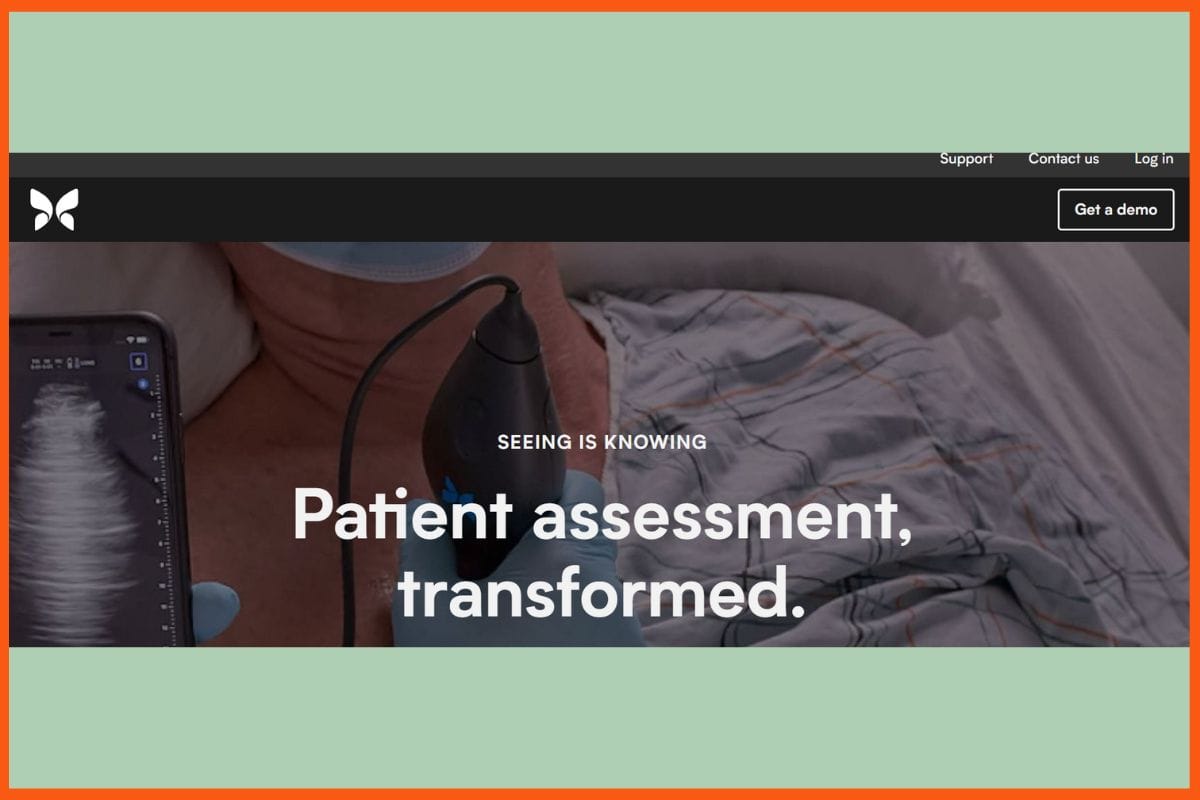
Butterfly Network provides a pocket ultrasound for doctors, no more complicated than a stethoscope. AI ensures that bedside scans are fast and clear, directing the user to acquire sharp images despite tough circumstances. Operating with a single probe for the whole body, the need for multiple machines is eradicated. The cloud software gets the scans moving in seconds, as AI provides some reading assistance, and experts can give their advice from anywhere. Scanning, diagnosing, and initiating care occur within minutes, eliminating patient wait time. Strong, cheap device that brings quality imaging to every setting—big hospital and rural clinic alike—meaning that modern care is now fast, smart, and accessible to all.
Pros
- Scans anywhere—even beside your bed, in the house, or within the field
- One-body imaging with just one device
- Image capture and analysis supervised by AI
Cons
- Yearly subscription for advanced features
- Need some time to learn for newbies.
Pricing
Individuals & Teams
| Plan | Pricing |
|---|---|
| iQ+ | $2,699 |
| iQ3 | $3,899 |
Enterprise
| Plan | Pricing |
|---|---|
| iQ+ | $3,499 |
| iQ3 | $4,699 |
PathAI
| WEBSITE | pathai.com |
|---|---|
| Rating | 4.6 |
| Free Trial | No |
| Best For | Pathologists and healthcare institutions seeking AI-powered pathology diagnostics and analysis tools. |
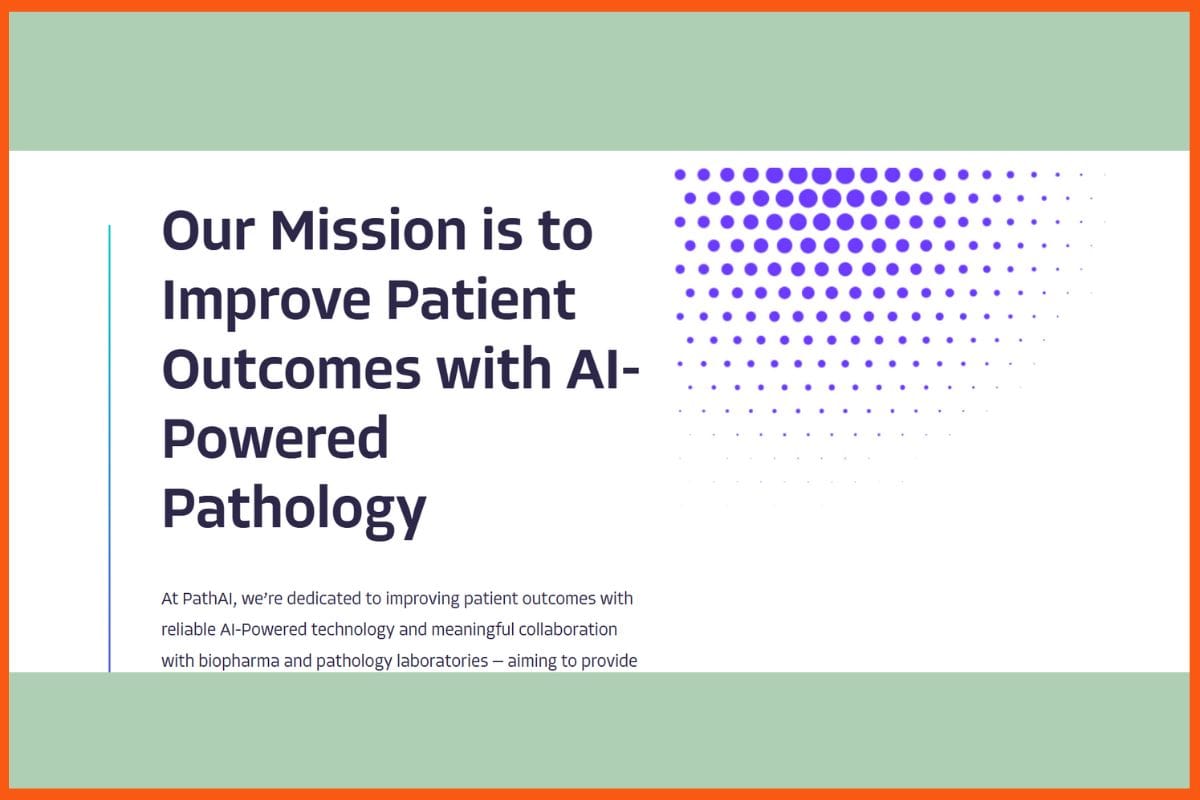
Precision gets empowered into the hands of doctors with PathAI. Scanning pathology slides using deep learning, it detects hidden signs of disease. It helps to get patterns and tumors that the human eye may miss at a quick glance. Supported by AI results, the doctors will be able to reduce misdiagnosis and build sharper treatment strategies. PathAI allows teams to increase case throughput, reduce errors, and provide answers to patients faster. Cloud tools allow for simple sharing, enabling physicians to collaborate seamlessly across hospital sites. The system grows more accurate over time as it learns. For doctors, PathAI offers less guesswork, more clarity, and greater confidence at the microscope.
Pros
- Fast and precise diagnosis Swoops with its scanners for cancer cells and patterns hiding away
- With every new case, it learns as better from past transformations.
- Reduced pathologist workload
Cons
- Required highly-resolved digital slides
- Setup and training take some time
Pricing
PathAI offers custom pricing; contact them for a quote.

Aidoc
| WEBSITE | aidoc.com |
|---|---|
| Rating | 4.5 |
| Free Trial | No |
| Best For | Radiologists and hospitals using AI-powered medical imaging solutions for faster and more accurate diagnostics. |
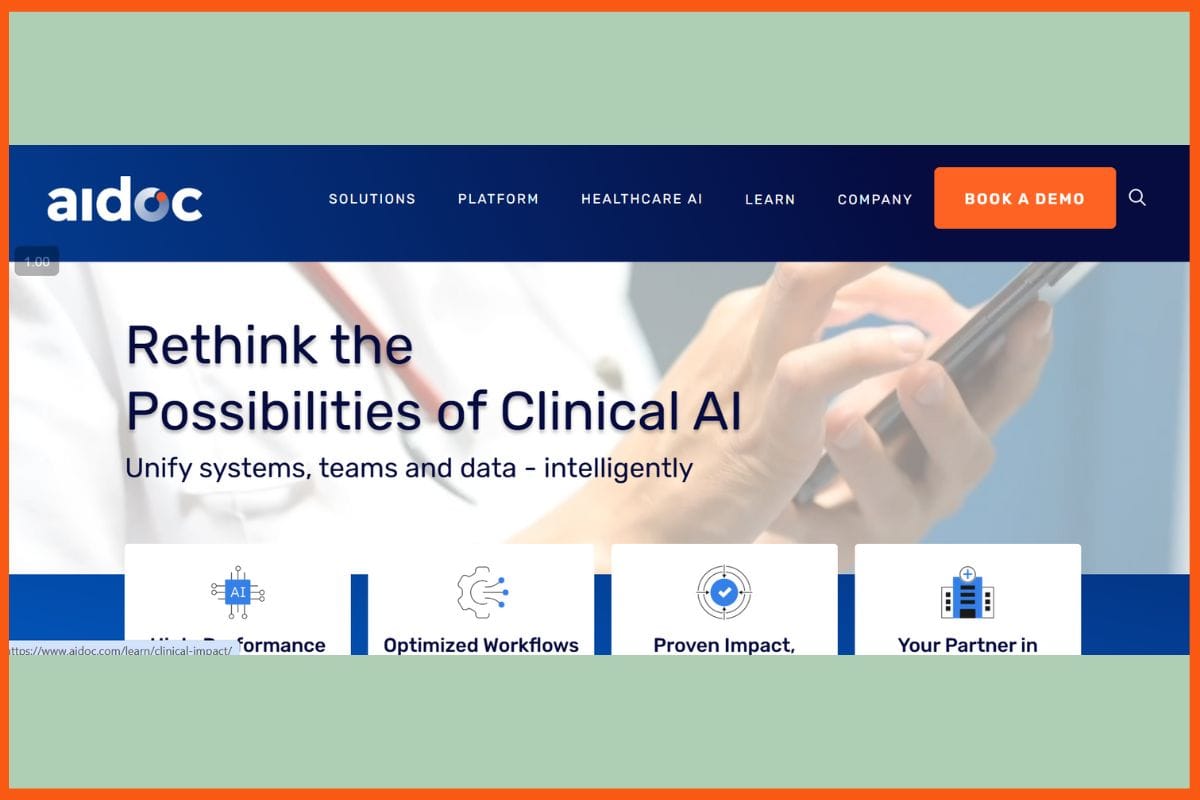
Aidoc – the radiologist empowered with artificial intelligence. The software runs in the background while receiving, scanning images, and creating instant alerts for severe strokes, bleeds, and clots so that no evidence is missed. The intelligent algorithms link the urgent findings to linked hospital records before taking the final actions of the care team—all embedded within their normal workflow. This reduces time of waiting, speeds up the diagnosis, and renders a timely level of help to the patient. This means less manual clicking and clearer insights for doctors. Millions of dollars per year are paid by leading hospitals for Aidoc services, which helps take medical teams from detection to therapy quickly and accurately, saving lives in time-critical emergencies.
Pros
- Implemented deep into the hospital systems and workflows.
- Supports for follow-up and activating care teams.
- Works on massive imaging volume without a slow-down.
Cons
- Mandatory digital infrastructure in place for optimal outcomes.
- Costs may be considered too high for smaller clinics.
Pricing
Aidoc offers custom pricing; contact them for a quote.
IBM Watson Health
| WEBSITE | ibm.com/watson-health |
|---|---|
| Rating | 4.4 |
| Free Trial | No |
| Best For | Healthcare providers and researchers leveraging AI for clinical decision support, analytics, and medical data management. |

IBM Watson Health, now rebranded as Merative, introduces artificial intelligence capabilities to solve the greatest organizational headaches. It scans mountains of patient data, images, and recommends treatment plans based on the latest research. Such tools in natural language processing sites allow doctors to pose questions and extract insights in seconds. Watson Health engages in national population surveillance and helps discover emerging outbreaks as it delivers virtual assistants helping patients at all hours. Its effectiveness is to make paperwork-automated processes streamlined while fine-tuning diagnosis. That frees doctors up to focus more of their time and energy on care-fast, informed, and human.
Pros
- Analysis of medical histories, pictures, and genetic data on a large scale
- Documentation, billing, and compliance streamlined
- Real-time assistance via chatbots for patient concerns
Cons
- Requires a sound data infrastructure to run well
- Price varies by system size and features
Pricing
IBM Watson Health offers custom pricing; contact them for a quote.
DeepScribe
| WEBSITE | deepscribe.ai |
|---|---|
| Rating | 4.5 |
| Free Trial | Yes |
| Best For | Healthcare professionals seeking AI-powered medical transcription and clinical documentation solutions. |
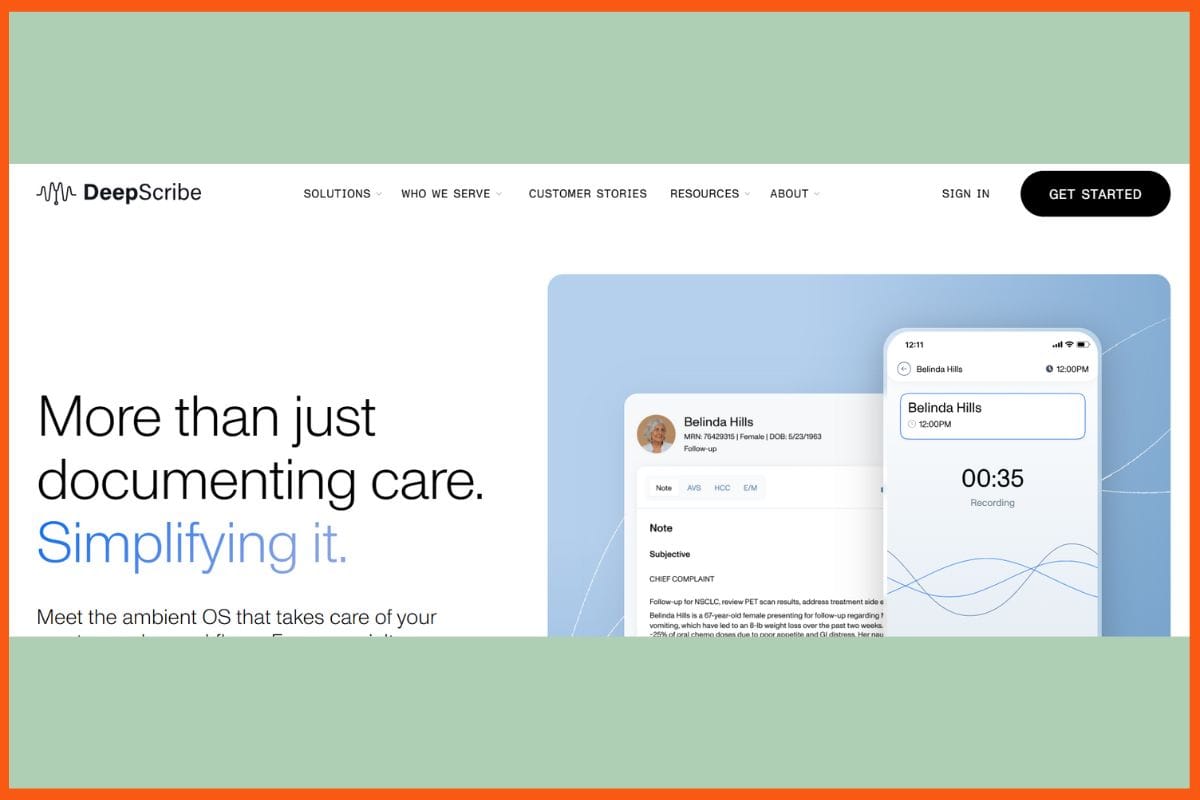
DeepScribe listens to doctors focusing on patients rather than paperwork. However, while the assistant captures every word in a patient visit, it turns into a very clear, EHR-ready format that is, with AI working in the background. The speech recognition is tuned for medical terms and can pick up even fast or mumbled speech. DeepScribe links to popular EHR systems, codes for billing in real-time, and up to 75% cuts time spent on documentation. The result-chart closure in under 2 minutes, with more time spent visiting patients and less burnout. Deep, smart, safe, and always turned on, DeepScribe makes clinical notes smoother, safer, and faster than ever possible.
Pros
- Recognizes uses over 400 medical terms and specialties
- Accurately suggest billing codes within notes
- Strong data privacy tools make it HIPAA-compliant.
Cons
- Needs an iOS device for optimal operation
- Some edits might have to take place for complex cases.
Pricing
DeepScribe offers custom pricing; contact them for a quote.

BioMind
| WEBSITE | biomind.ai |
|---|---|
| Rating | 4.4 |
| Free Trial | No |
| Best For | Hospitals and medical professionals using AI for diagnostics, imaging analysis, and clinical decision support. |

BioMind makes smarter and faster brain scans. This AI-based tool employs deep learning techniques for the detection of brain diseases, cancers, aneurysms, and more, seconds after a scan. It has beaten head-to-head challenges against leading doctors in terms of speed and accuracy. BioMind reads CT and MRI images, finds tiny clues that humans may miss and flags risks before problems get big. With this system, doctors can save time, catch disease early, and give clearer answers to patients. With each scan, its system learns and, in doing so, keeps improving the results. It converts tough calls into quick decisions by having a 90% accuracy-plus for over 100 diseases.
Pros
- Diagnoses more than 100 conditions, many of which are rarer ones.
- Exceeds human speed and accuracy for the brain scan.
- Incorporates the leading imaging modalities.
Cons
- Requires thousands of fine-quality medical images for training.
- Typically enterprise-level, customized for hospitals.
Pricing
BioMind offers custom pricing; contact them for a quote.
Tempus
| WEBSITE | tempus.com |
|---|---|
| Rating | 4.5 |
| Free Trial | No |
| Best For | Healthcare providers and researchers using AI-powered precision medicine, genomics, and clinical data analytics. |
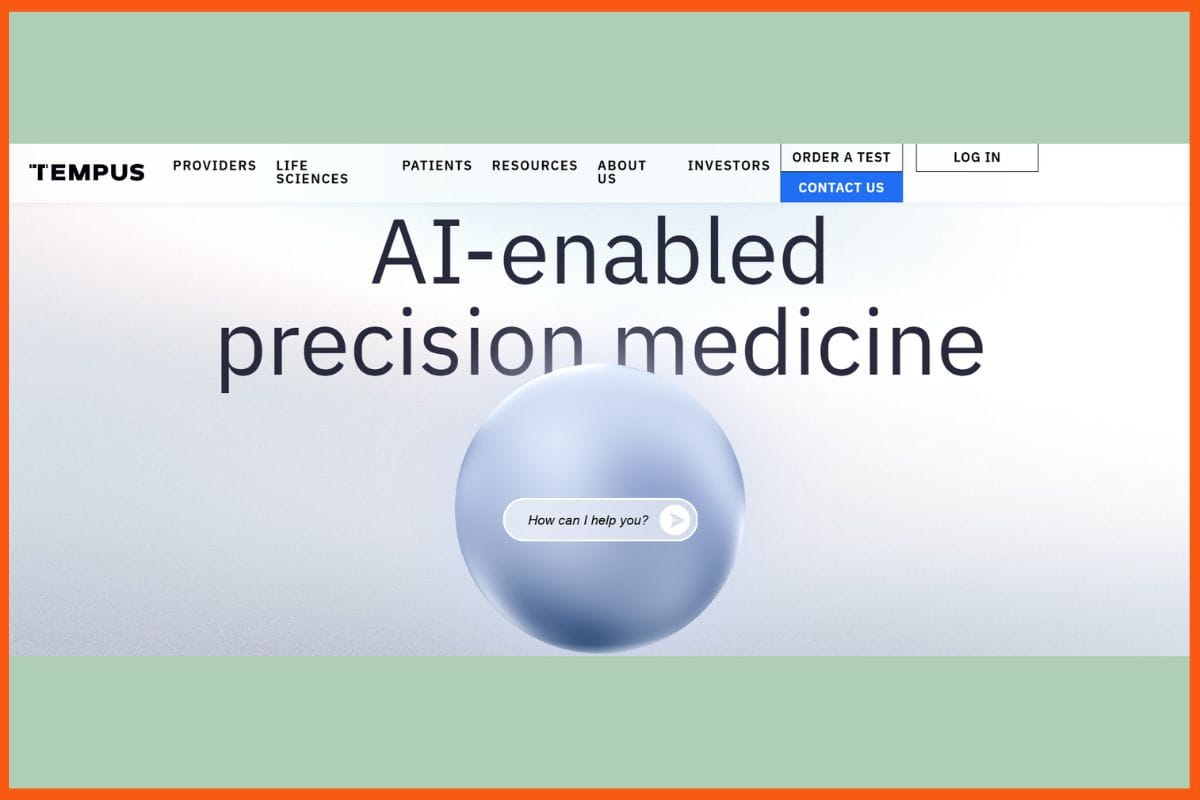
Tempus makes life-saving decisions derived from large data sets. Tempus transforms results from laboratory tests, scans, genes, and health records into clear choices for a doctor’s decision. Tempus delivers straightforward reports in questions of cancer risk, determines the best treatment, and fits patients into clinical trials-all in seconds. Tempus has one of the major health data banks-helping physicians and researchers see patterns and track new medicines faster. Tempus updates as new research comes in, keeping everyone leveraged with the most recent and most precise care. The objective definition is pretty simple-improved guidance for patients sooner and more personalized than before. In difficult situations, Tempus gives an edge to physicians around.
Pros
- Crosses data from laboratory, genomic and medical records for a complete view
- In-the-moment AI-driven insights on oncology and rare disease care
- Data becomes smarter with the next test
Cons
- Cost of AI-based tools may be prohibitive for smaller practices
- Some products may have a learning curve
Pricing
Tempus offers custom pricing; contact them for a quote.
Regard
| WEBSITE | regard.ai |
|---|---|
| Rating | 4.2 |
| Free Trial | Yes |
| Best For | Healthcare providers and clinics seeking AI-powered patient engagement, appointment management, and communication solutions. |
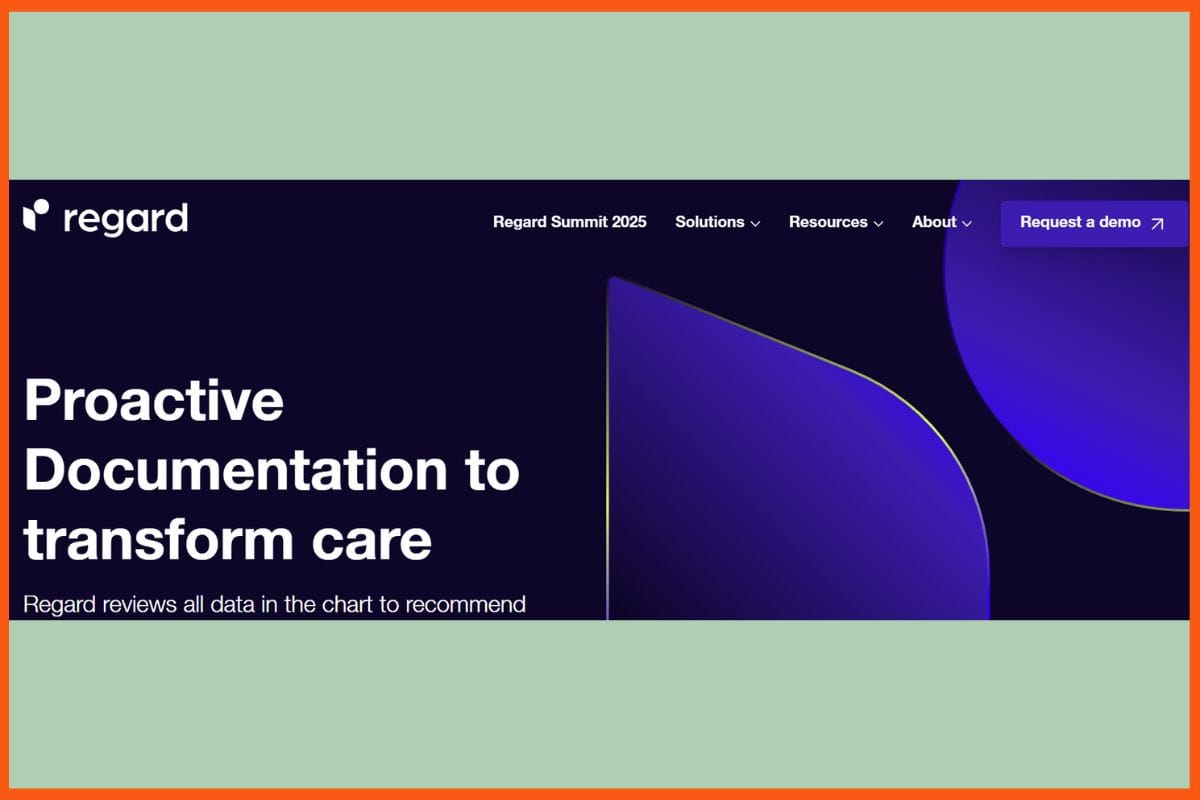
Regard harnesses advanced AI technology in making the lives of medical practitioners simpler while increasing safety measures for patients. It appropriately synchronizes an instantaneous record of a patient-doctor conversation together with comprehensive EHR data into a smart, complete draft by the end of every interaction. Its anticipatory documentation helps in surfacing hidden diagnoses and critical details often overlooked in routine care. It creates recommendations of diagnoses, fits each doctor’s writing style, and even accommodates complex summaries, attestations, and discharge notes. The Max AI agent instantly answers clinical queries, summarizes encounters, and supports workflows. The tools from Regard cater to almost all branches of specialty in augmenting care and documentation at the same time.
Pros
- Contextualizing discussion with EHR data, making actual clinical notes
- Support for all specialties with flexible workflows
- agency-based AI called “Max” to answer, summarize, and assist in real-time decisions.
Cons
- New users cannot avoid the learning curve
- Deep integration may require IT assistance
Pricing
Regard offers custom pricing; contact them for a quote.
Moxi
| WEBSITE | moxi.com |
|---|---|
| Rating | 4.3 |
| Free Trial | Yes |
| Best For | Healthcare providers and hospital staff using AI-powered solutions for workflow automation and patient care management. |
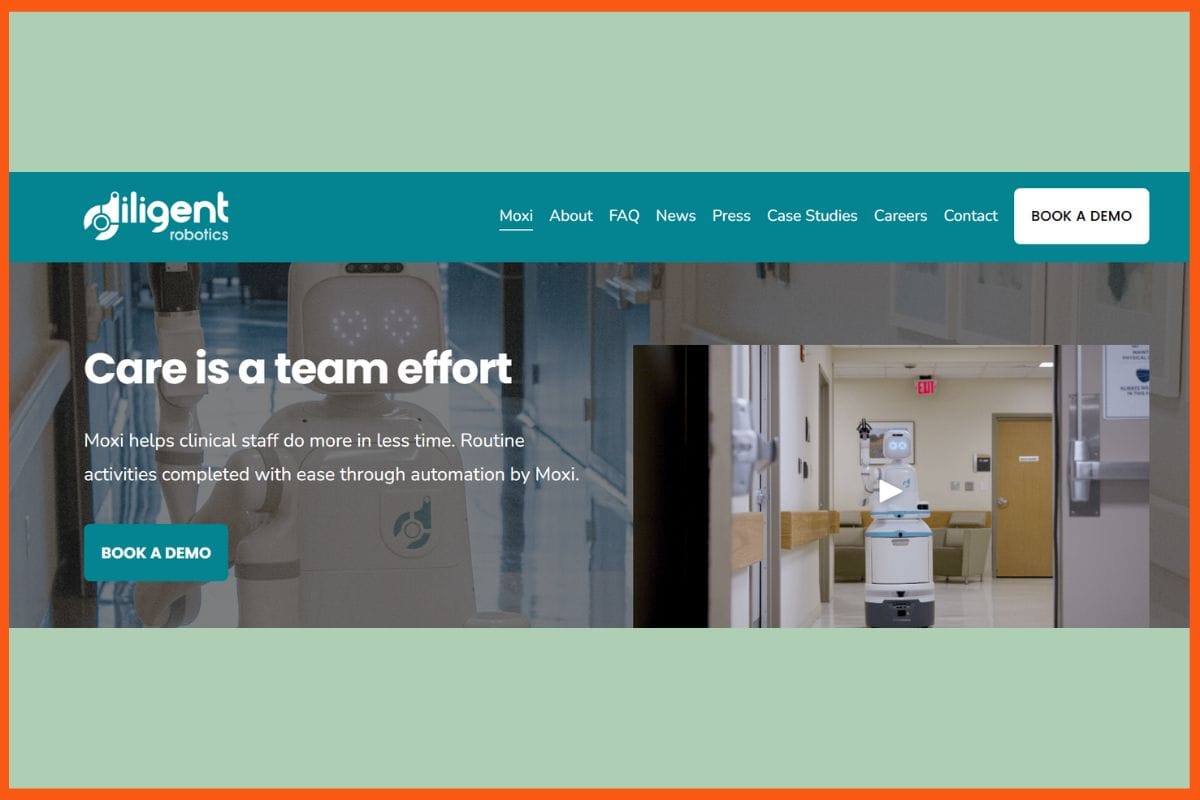
Moxi is also a very cheerful hospital robot for nurses, secures them, and doesn’t even understand the meaning of sick leaves. The thing about the running duties by Moxi is mostly under jumping up and down through a hospital for collecting medicines, supplies, and laboratory samples from patients, freeing nurses for those works that can only be done by humans. With one robotic arm, AI vision, and social cues, it opens doors, rides elevators, and adapts to busy wards-all on its own. Moxi moves 24 hours a day, 7 days a week, tackling repulsive chores, diminishing chances of burnout, and helping hospitals run smoothly.
Pros
- Eases employee burnout by taking over all the non-patient-related work
- Works continuously without requiring breaks
- Saves operational costs in the long run
Cons
- Huge cost hit in set-up and annual fees for hospitals
- Requires training and maintenance costs for staff
Pricing
Moxi offers custom pricing; contact them for a quote.

HealthTap
| WEBSITE | healthtap.com |
|---|---|
| Rating | 4.4 |
| Free Trial | Yes |
| Best For | Patients and healthcare providers seeking AI-powered telehealth consultations and medical guidance. |
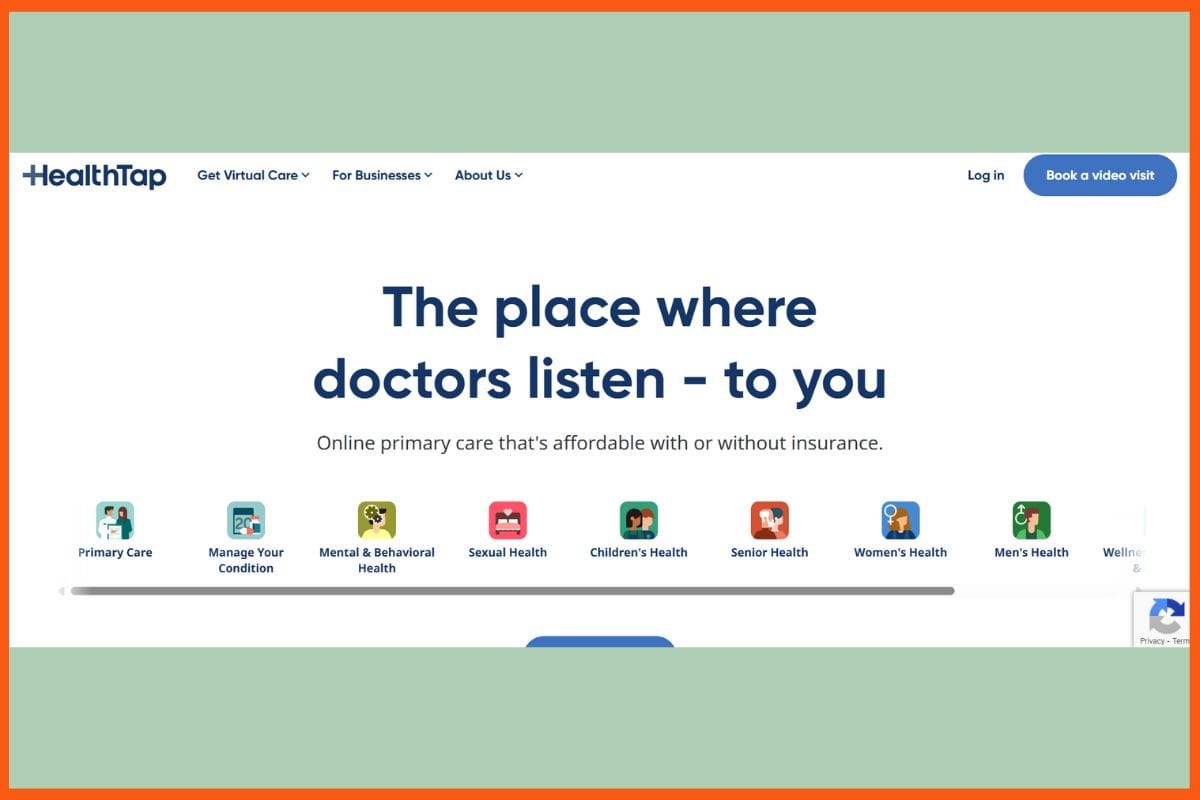
HealthTap is providing doctors and patients an AI-based overall solution for every step of their journey in healthcare. Its intelligent bot “Dr. A.I” not only interviews patients through symptom checks before their visit but also collects and summarizes this information in seconds. Physicians get succinct notes, instant triage by danger alerts for high-risk cases, enabling them to save time and yield better outcomes. AI will, therefore, be integrated into EHRs, ensuring billing, follow-ups, and monitoring after care. With real-time language processing, the system personalizes for the user, ensuring effects of virtual care, 24/7 availability, accessible, and personal care. HealthTap continually adds intelligence through new learning from feedback and medical research.
Pros
- All-day AI sorting and access to care
- Pre-visit data collection saves the clinician’s time
- Seamless connection with 90,000+ verified doctors
Cons
- Some levels may not cover prescriptions or lab orders
- AI consultation only complements human clinical judgment
Pricing
HealthTap offers custom pricing; contact them for a quote.
Conclusion
The use of artificial intelligence is rapidly changing the playing field of what can be expected from a medical professional. It helps in the early detection of diseases, in guiding the therapeutic interventions, and in assisting with time-draining tasks that move patients out of focus. Nowadays, care has become sharper, swifter, and individualized. Doctors are now able to see trends, prevent an array of petty mistakes, and dedicate more time to curing the patient rather than working on paperwork. This transition is giving every single doctor a level playing field, irrespective of his or her workplace. The biggest winner will be the patient: clear answers, reduced waiting periods, and safer care.

FAQs
What are some best AI tools doctors should know?
Some best AI tools doctors should know are :
- Butterfly Network
- PathAI
- Aidoc
- IBM Watson Health (Merative)
- DeepScribe
- BioMind
- Tempus
- Regard
- Moxi
- HealthTap
What are the benefits of using AI-powered tools in hospitals and clinics?
AI-powered tools help doctors reduce misdiagnosis, save time on paperwork, improve patient outcomes, and allow more focus on patient care rather than administrative tasks.
Can AI detect diseases earlier than doctors?
Yes, AI can analyze large datasets and medical scans to identify subtle patterns of disease that may be missed by the human eye, enabling earlier detection and timely treatment.
Is AI replacing doctors in healthcare?
No, AI is not replacing doctors but assisting them. AI acts as a supportive tool that enhances decision-making, reduces errors, and handles repetitive tasks so that healthcare professionals can focus on patient care.




































